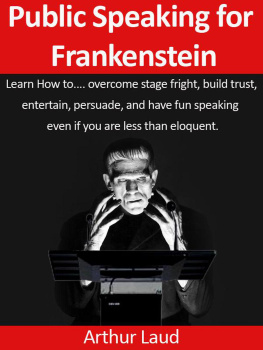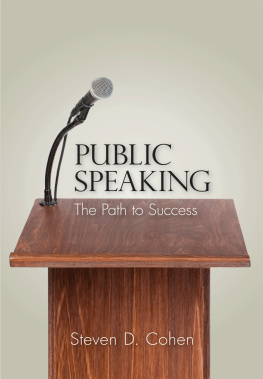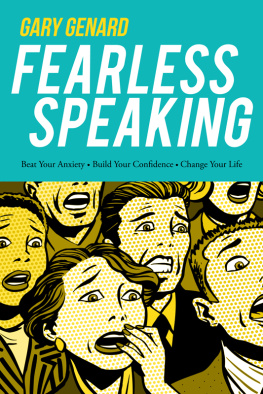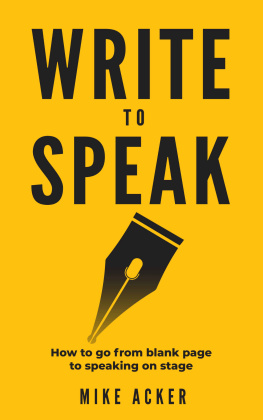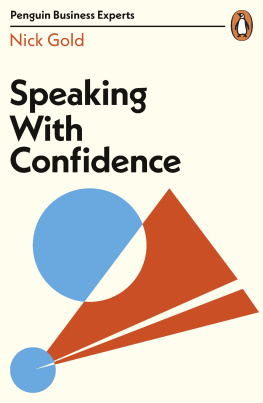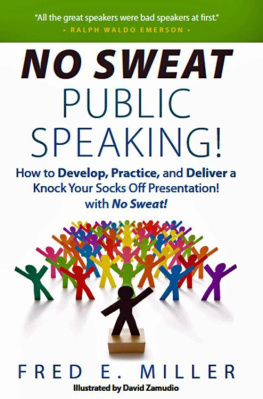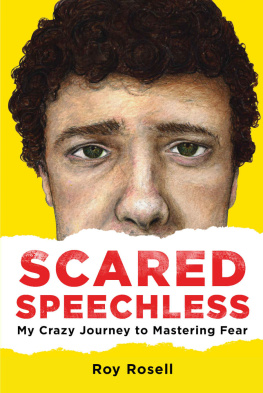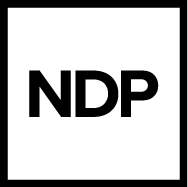How to Conquer Your Fear of Public Speaking and Confidently Present Yourself to the World
To my best buddies, Pepper and Kirk. May you find your voice and use it for joy and kindness. You two inspire me every day!
And to everyone searching to find the way they wish to present themselves to the world. Take a deep breath, listen to yourself, and go. You got this!
Standing up requires us to cultivate a state of mind. One where we believe that our voice matters. That our ideas matter. That we matter.
Stop acting so small. You are the Universe in ecstatic motion.
Introduction
When I was in seventh grade, I had to give a speech on stage. I dont even remember what it was for, but I distinctly remember that I was anxious, as any gangly, awkward middle schooler might be. I told my dad about my nerves.
Whats the worst thing that could happen? he asked.
I really had no idea, but I said, Well, what if I trip going across the stage?
I guess youll keep walking.
I blinked hard a few times, staring at him.
What if I forget what Im going to say and I trip going across the stage? I asked with more urgency.
Buddy, he began, one of the most important things you can learn in life, you may as well learn right now: People dont care as much about you as you think they do. Theyre too busy with their own stuff. He said it with a slight smile and a wink in his eyebut he was also dead serious. It blew my twelve-year-old mind, and at thirty-eight, I can now confidently say hes been right.
I dont remember how our conversation ended or even how the speech went (which means I probably didnt trip!). But I remember this moment with my dad because its made all the difference in my life. I think about it frequently nowwhen Im feeling insecure and awkward, whether Im giving a presentation or just walking into a restaurant to meet a friend. I think about it when I need to assure others that theyre okay on stage. I tell my kids some version of it when they are worried about getting unwanted attention. Its a strangely comforting thing to think about. Sure, were all noticing each other in some way all the time, but its not as dire as we think. Were tangled up in the nets and webs of our own minds, so much so that theres no space to pay too much attention to others (unless, of course, were doing it in a way that makes us feel less thanwhich we all do, and well tackle that later).
I was lucky to have grown up in a household that promoted a mix of healthy confidence and humility. I was an incredibly tall and gangly young girl, closer to a giraffe, maybe, than a human. I had arms for days and skis for feet, big poofy hair, and a big gap in my teeth (not a Cool Gap like Madonna and Lauren Hutton have, but a Normal Gap that required three years of braces). Looking back at old photos, I cannot explain how I got away unscathed with this collection of features. I know I had moments of awkward feelings like any other young person, but I can honestly say that I went through adolescence feeling pretty good about myself, delightfully naive to the perils of a young gal with huge hands, a face full of freckles, and intimidatingly towering height. I was getting schooled, slowly but surely, in how to advocate for belonging, how to feel safe inside myself, and how every part of me could be of value.
As my life went on, I performed on various stages. I played a lot of sports, an environment that calls for continual performanceand judgment. I studied business as an undergrad and mental health in graduate school. Both showed me how peoples inner and external worlds interact and how we grapple with presenting ourselves every day. I then lived in New York City and Washington, DC, where I learned and performed improv comedy, writing, storytelling, and TV commercials. This is when the concepts of literal stage performance solidified in my mind, and I got more insight into why performing, presenting ourselves, and public speaking is terrifying and difficult (an insight which Ill be sharing with you in this book).
In my adult professional life, Ive had to really unpack what it means to be comfortable on stage. One of the most helpful things has been rethinking what the stage really is for people with whom I work. In my work as a storytelling producer and a training facilitator, people share the most incredible stories with me. In many ways, theyre sharing the most vulnerable parts of who they are: their secrets, their fears, their insecurities, their dreams. My job is to help them address those vulnerabilities and take the stage in their own life with more confidence. Ive gotten to help college students explore who they are so that they have more chutzpah going into the professional world. Ive helped businesspeople present more confidently so they dont have anxiety attacks at professional conferences. Ive been witness to brave coming-out stories in our shows that feature voices of the LGBTQ+ community, and Ive heard the bold narratives of African American scientists who have navigated the predominately white halls of academia. Ive gotten to work with mothers who are redefining their identities again after having kids.
In all of these scenarios, theres a yearning for self-expression and a connection with others.
Public speaking is less about what we say and much more about two very critical things: the way we want to present ourselves to the world, and how we can connect with others through presenting. This goes beyond our tone, our style, and our social media presence. It goes beyond how many followers we have and if we know our audience or not. The importance lies in how we show up for ourselves and how we relate toothers.
So many of us get hung up on scripts, PowerPoints, rules, and data sets when were speaking and making presentations. While these are valuable tools, they are not who you are as a presenter. And in some cases, these otherwise valuable tools become distractions (or even crutches) that prevent us from showing up as who we are and making the impact we want to in an authentic way. Public presentation, in whatever form, is about our ability to show up and be seen and present ourselves to our audience with candor and vulnerability alongside our expertise.
I wanted to write a book about public speaking because I think public speaking is so much bigger than how we define it. This book is for folks who want confidence around public speaking and self-presentation. This book is for people who are yearning to let go of the turtlenecks they hide their hives in on a first date and those who cry it out in the bathroom stall before they give a presentation at work. This is for the students who want to crush their interviews. This is for folks who want to share their story with others but dont know how to begin. Its a big, bad, scary world of communication out there. Its also a big, beautiful, world with chances for connection.
My hope is that youll read this book and discover the version of yourself that you value and appreciate and want to shareyour unique inner voice. I want you to know your own strength when you have felt battered and beaten up by past experiences of presentations-gone-wrong. I hope that you can let the cringe of past moments of perceived failure in public speaking wash through you, hives, voice cracks, and all. Through the work you do here, youll see that youre not all wrapped up in your slide deck or the data you must present, or that shirt you wanted to wear for your date that doesnt fit any more. Knowing your own strength, beautifully, gets you in contact with others. Public speaking is not a set up for embarrassment and failure, but rather an opportunity for connection and learning. And if you trip across the stage as you go, you can get back up and have the confidence to try again.


